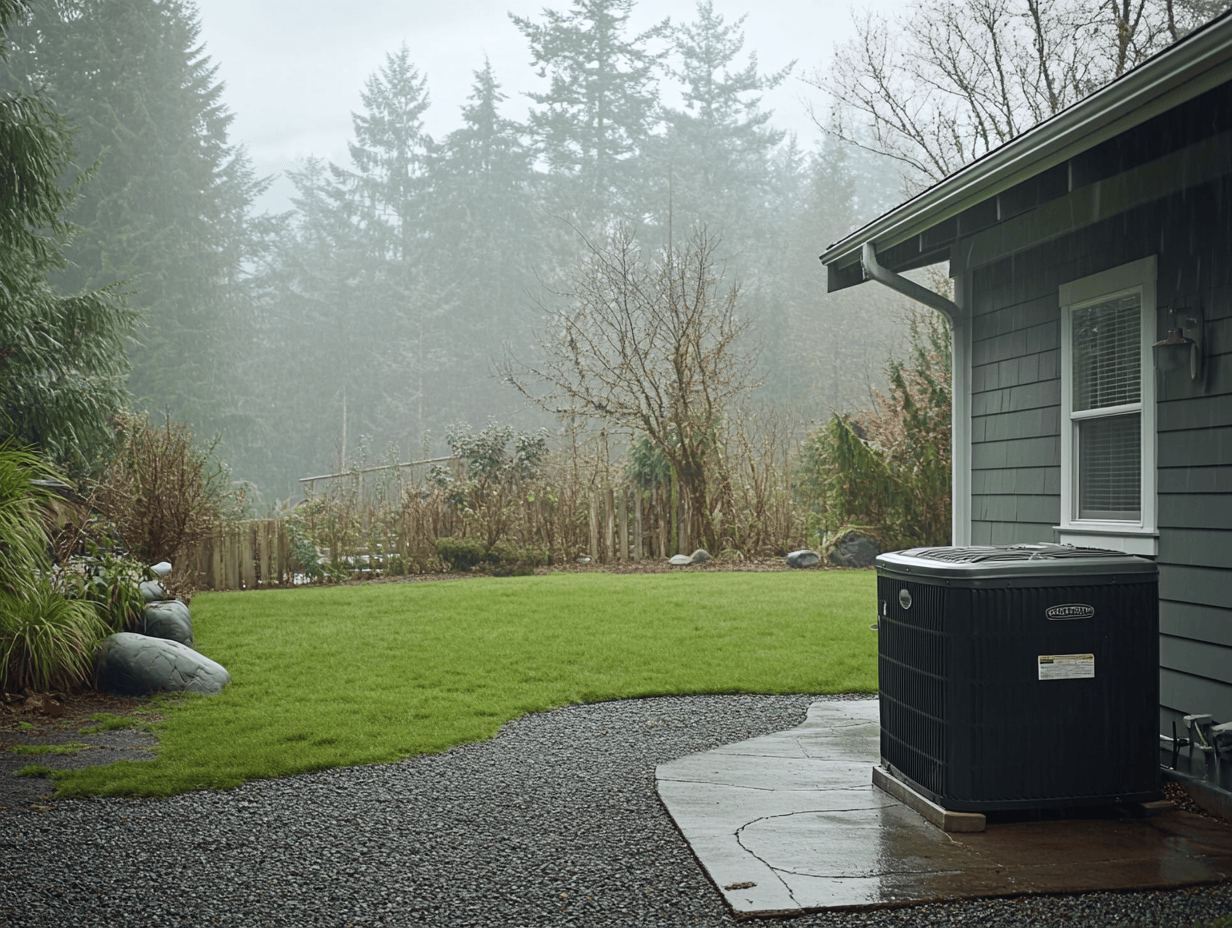
Living near the ocean has its perks—but it can take a toll on your air conditioning system. Salt air, humidity, and sand can corrode metal components and shorten the lifespan of your outdoor unit. If you’re in a coastal area like White Rock, Tsawwassen, or other parts of the Lower Mainland near the sea, protecting your AC unit is a smart investment in long-term efficiency and performance.
Why Coastal Environments Are Tough on AC Units
Salt-laden air accelerates corrosion, especially on condenser coils and external housing. Moisture from ocean breezes can cause rust and electrical issues, while airborne sand and debris can clog fins and restrict airflow.
Top Ways to Protect Your Outdoor AC Unit Near the Coast
1. Apply a Protective Coating
Ask your HVAC technician about coil coatings designed to resist salt corrosion. Anti-corrosion sprays or epoxy coatings can help extend the life of your outdoor unit.
2. Use a Coastal-Rated AC Unit
If you’re installing a new system, choose one with a coastal durability rating. These models are specifically designed to handle salty air and humid conditions.
3. Rinse the Unit Regularly
Hose down the outdoor unit with fresh water every 2–4 weeks to remove salt buildup, especially during summer months. Do not use a pressure washer—it can damage delicate components.
4. Install a Wind Barrier
A non-obstructive barrier or fence can help block direct exposure to salty wind and sand without limiting airflow. Just make sure there’s enough clearance for proper ventilation.
5. Elevate the Unit
Installing the unit on a raised platform helps avoid contact with salty ground water or sand during storms or high tides.
6. Schedule Preventive Maintenance
Coastal units need more frequent inspections. Have an HVAC pro check your unit at least once a year (twice if possible) to clean coils, check connections, and inspect for early signs of corrosion or wear.
Bonus Tips for Long-Term Protection
- Consider a weatherproof AC cover for the off-season (but never while running).
- Trim back shrubs and plants to keep salty moisture and debris at bay.
- Record your unit’s serial number and warranty in case of salt-related failure.
Frequently Asked Questions About Coastal AC Units
How often should I rinse my AC unit if I live near the ocean?
Every 2–4 weeks in the summer and after any major windstorm or salt spray event.
What’s the best AC unit for coastal environments?
Choose a unit with a factory-applied coil coating and a marine-grade rating if available. Brands like Trane and Daikin offer coastal models.
Can I install the AC unit indoors to protect it?
No. Outdoor AC condensers require external airflow and heat dissipation. Protect it using barriers, coatings, and elevated mounts instead.
Will salt void my HVAC warranty?
In some cases, yes—especially if damage results from neglect or improper cleaning. Always check your warranty and ask about coastal protection options at install time.
Protect Your Coastal AC Investment with Pro West
At Pro West Heating & Air Conditioning, we’ve helped homeowners all along BC’s coast protect and maintain their air conditioners. Whether you’re in White Rock, Tsawwassen, or the surrounding Lower Mainland, we offer coastal-specific maintenance and installation support.
📞 Contact us at 604-990-7550 to schedule a tune-up or ask about marine-rated HVAC systems.